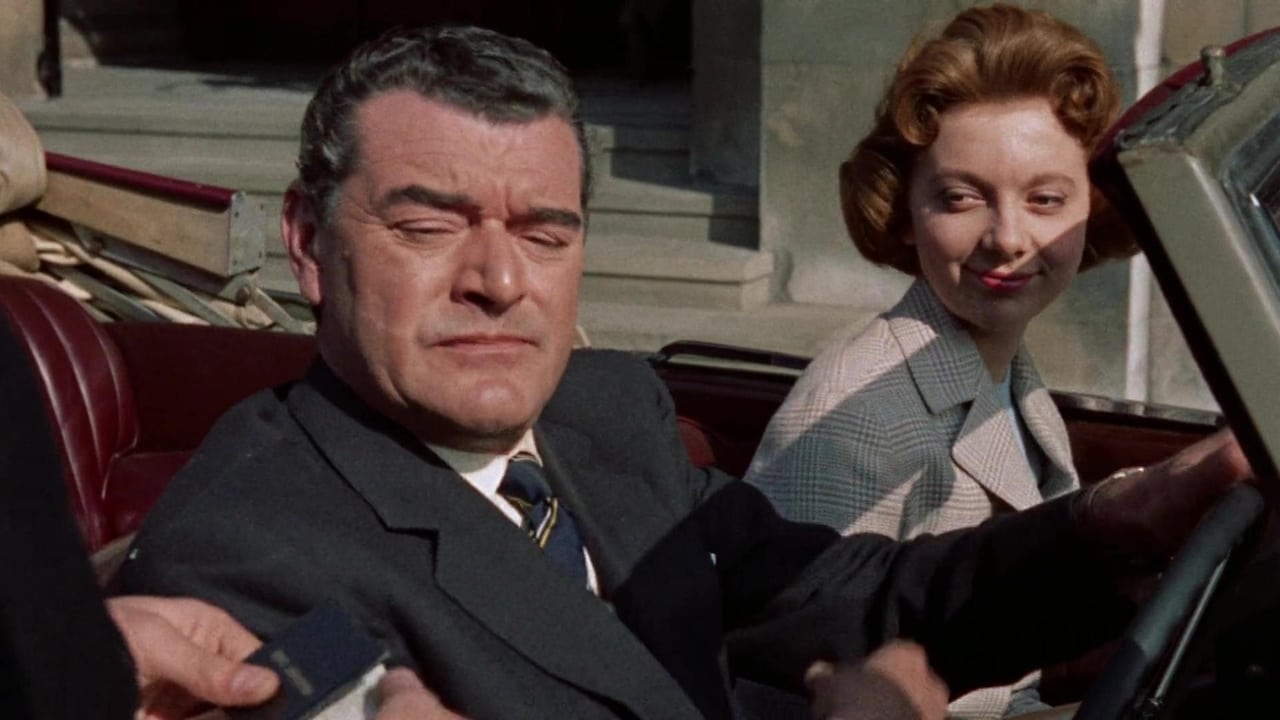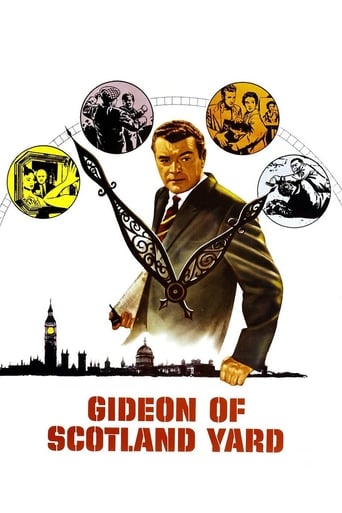



Stylish but barely mediocre overall
It’s fine. It's literally the definition of a fine movie. You’ve seen it before, you know every beat and outcome before the characters even do. Only question is how much escapism you’re looking for.
View MoreEasily the biggest piece of Right wing non sense propaganda I ever saw.
View MoreJust intense enough to provide a much-needed diversion, just lightweight enough to make you forget about it soon after it’s over. It’s not exactly “good,” per se, but it does what it sets out to do in terms of putting us on edge, which makes it … successful?
View MoreWith reference to the cardboard bridge and fake 'bus being pulled across it in "Gideons Day ", the same bizarre thing happens in the 1961 film "No Love For Johnnie ".Whenever Peter Finch and his fellow actors are on the terrace of the House Of Commons ( a studio set )with Westminster Bridge in the background, the bridge is obviously a piece of scenery and every now and then a flat cardboard 'bus and the occasional car can be seen juddering back and for. In real life of course, even in 1961 there would have been a constant stream of traffic on the bridge.It's an unbelievably ( and laughably ) cheap effect, especially in such a gritty, kitchen-sink style political drama which was pretty sensational stuff at the time of its release. Yet no one mentions it on the films IMDb page!
View MoreThis rarely seen (or shown) rarity from the great westerns director John Ford, was screened recently as Channel 4's weekday lunchtime movie. The film's alternative title, 'Gideon of Scotland Yard' gives us a clearer picture of where it is set and what it is about.Not paying much attention to what it said in Radio Times beforehand, I assumed it was a Dixon Of Dock Green sort of black & white semi- documentary, along the lines of the excellent 'Blue Lamp'.For a start, it's in colour and opens with breakfast time with the family, for Inspector Jack Gideon, all brisk and jovial. His drive to work results in going through a red light and is embarrassingly challenged by a youth PC.From here-on in, the comedic elements dissipate as Insp Gideon's day unfolds, with phone calls and leads, all going on to illustrate 'the day in the life' that is the title. The mixture of crime is, obviously quite innocent when compared to today and the likes of 'The Bill', but this is 1958 and the censors were always prevalent, not that I'm suggesting that Ford would have set out to paint an overly colourful scenario.The script is by Ealing Studio regular T.E.B Clarke, from John Creasey's novel and whilst it's not exactly electric, it's brisk enough, with a light tone and those of a certain age will find much pleasure in the period detail, scenes around London and the general way of doing things 'back then'.Such viewers might have wanted to give a higher score than I am, though. To be honest, the direction could have been done by anyone proficient and whilst the studio-bound indoor sets are well done, they are just that, though also to be fair, Insp Gideon is seen going about between locations enough to remind us that he's very busy...Finally, there is a nice John Ford sense of irony at the end though, which gives a real sense of satisfaction.
View MoreThis is a run-of-the-mill police drama noteworthy for being directed by John Ford. Lots of familiar British character players give it some interest but it compares poorly with The Long Arm, another police picture also starring Jack Hawkins. I don't usually spot mistakes in films but I did notice two in this one. When policeman Andrew Ray follows killer Laurence Naismith down the street he picks up the newspaper Naismith has dropped and we see the headline. When we see it again it has a different headline. When Hawkins' wife Anna Lee takes a hot casserole from the oven she uses an oven cloth but two minutes later daughter Anna Massey takes the lid off with her bare hand.
View MoreI fall easily into the worlds of great filmmakers. I do, even when the skills are outstripped by the ambition. I have many that I seek out.So it puzzles the daylights out of me that I just cannot see Ford as one of the greats. Not as a filmmaker. Yes, I grant that he deeply understood the western and was able to fill it several times, counting "Grapes" as a western. But when he tries to tell a story as a story instead of a variation on something embedded in us, he falls flat."Valley" was nicely photographed, but was a disaster in terms of the long form. Probably the most offensive film was his "Irish" film which brought the western and plunked it down in Ireland. It was as crass as the American in the thing.So I sought this out. This would have been a thrice matured Ford, one worried about narrative structure. Here, he walked into the only other genre as entrenched as the western, the detective story. I wanted to see. If he was a master, if he understood the form at all, we may see something extraordinary. It didn't matter whether it was a good film or well received. I expected it to be interesting to see the choices he made.Well, there's the same spicing with humor as usual. And the same competent lighting. The actors seem at ease.But check this out: there is no long form at all, only a sequence of episodes, some of which are loosely related. What we get instead is Ford experimenting with the pace of dialog. All of his regular films have a languid rhythm of speech. I think he made John Wayne act and carry himself with this retarded swagger. In fact, I think he created the man himself, who he routinely called stupid.In this film, I believe Ford wanted to play with a different pace. The lines here are delivered fast. This denotes (at least here) quicker minds than usual. There surely are a large number of crimes being solved with offhanded ease. Part of the joke is how easily it appears to others in the story as well.That may have been enough reason for Ford to make this. But it is hardly enough for us to watch it.Ted's Evaluation -- 1 of 3: You can find something better to do with this part of your life.
View More